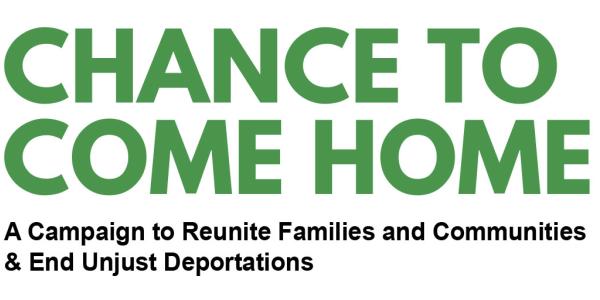“I love this country.”
Goura, now 63, came to the United States in 2000, after the Mauritanian government stripped him of his citizenship on the basis of his race. His asylum case was denied, but he was permitted to continue living in the United States under supervised release. He diligently complied with his ICE check-in appointments for nine years, and he never had contact with the criminal legal system. Nonetheless, the Trump administration abruptly detained Goura in 2018 during a routine check in and deported him. Unsafe in Mauritania, he fled to Senegal, where his life is a constant struggle due to his deteriorating health and inability to work.
Stateless
Goura applied for asylum in 2001 to seek protection from Mauritania, where the government uses modern-day slavery to target Black people. Prior to fleeing to the United States, Goura faced abuse at the hands of the Mauritanian government which stripped him of his citizenship due to his race. Nevertheless, Goura lost his asylum case in the United States based on an unjust determination by an immigration judge who ignored extensive literature showing continued persecution and abuse of Black Mauritians. Despite losing his asylum case, the U.S. government permitted Goura to remain in the country under supervised release, which required him to attend regular ICE check-ins.
Making Ohio home
During his nine years on supervised release, Goura built his life in Ohio as a devoted father and stepfather to four children, including a son who has Downs Syndrome and a congenital heart defect. He owned a successful electrician business, built a house, and paid his taxes. In early 2018, Goura was diagnosed with avascular necrosis — a serious and painful condition that causes the death of the hip bone. Soon afterward, the Trump administration detained Goura at his ICE check-in and initiated his deportation, making him a victim of a notorious ICE practice of deporting people even when they follow the rules by regularly appearing for their required ICE check-ins.
Medical neglect in ICE detention
After suddenly detaining Goura, ICE failed to provide adequate treatment for his hip condition while he was in jail, causing him to lose all mobility and rely entirely on a wheelchair. ICE deported him to Mauritania directly from detention, while he suffered grave pain. The check-in arrest of Goura was part of a spate of similar arrests of Black immigrants under the Trump administration.
Deported to dire straits
Goura’s life in Senegal is a constant struggle due to his deteriorating health and inability to work. He is currently living with nine other people, including his daughter and her extended family. Goura has limited access to the internet, making it hard to communicate with his loved ones back home in the United States.
Since Goura’s deportation in 2019, his family in the United States has faced near-homelessness. The weight of supporting and caring for the family has fallen heavily on his stepdaughter and daughter, who work part-time in addition to attending school, paying the bills, and helping Goura by sending him money.
Image
“I think deportation like this is a mistake. Because I believe it should not happen like that. They should give people second chances. Thats what I believe. I believe that anybody that leaves their country is because they have problems in their country. That’s my thinking. And I do love America. Whatever happened to me, I’m not gonna say any wrong things to any American people. No. I had a lot of friends. A lot of good neighbors. Never had problems with anybody. I couldn't believe they were going to deport me. I did nothing wrong. I love this country.
“It’s not easy to be in a country for almost 20 years and build your life and one day, it stops. It’s a long way to get experience in another country. To learn English. To go to school at nighttime. To learn. Go to work. Get the experience. And then one day they say stop. You don’t have it no more, you have to leave. The day they [ICE] tell me that — it was end of world for me.”
Goura will ask DHS to exercise its discretion and grant his request for humanitarian parole so he can reunite with his family in Ohio.
Goura is represented by the National Immigrant Justice Center.
- Deported to Mauritania in 2019 after 20 years in the U.S.
- Forced to flee anti-Black persecution and the threat of being enslaved in Mauritania; now living in Senegal
- Lived in Columbus, Ohio
- Separated from four children, including a son with special needs
Image
Read more stories:



